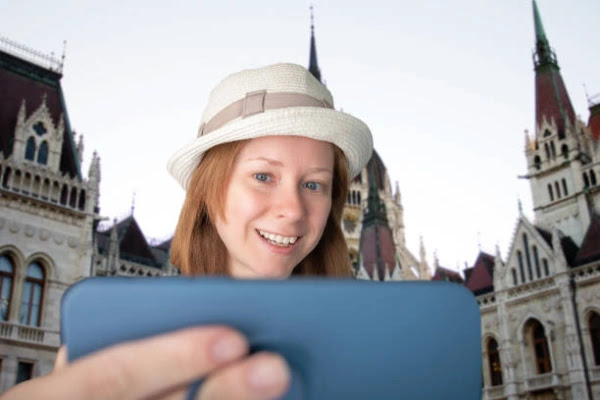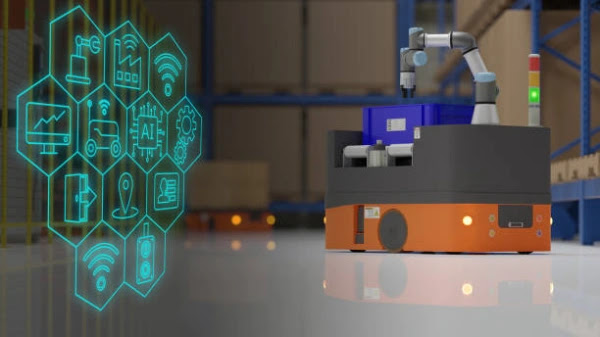Featured
- Get link
- X
- Other Apps
Smart Tourism
Enhancing Visitor Experiences with Technology
Introduction
In the digital age, the tourism industry is undergoing a
profound transformation fueled by advances in technology and changing consumer
preferences. Smart tourism, also known as digital tourism or intelligent
tourism, leverages technology to enhance visitor experiences, improve
destination management, and promote sustainable tourism practices. This article
explores the concept of smart tourism, its key components, applications,
benefits, and implications for the future of the travel industry.
Understanding Smart Tourism:
Smart tourism encompasses a range of digital technologies
and innovative solutions aimed at enhancing all aspects of the tourist
experience, from trip planning and booking to on-site navigation, activities,
and post-visit engagement. Smart tourism leverages a combination of mobile
apps, location-based services, data analytics, and Internet of Things (IoT)
devices to provide personalized, immersive, and seamless experiences for
travelers. Key components of smart tourism include:
- Mobile applications: Smart tourism
relies heavily on mobile applications that provide travelers with access
to destination information, interactive maps, real-time updates, and
personalized recommendations. These apps enable travelers to plan their
trips, book accommodations and activities, navigate unfamiliar
surroundings, and discover hidden gems with ease.
- Location-based services: Smart
tourism leverages location-based services such as GPS, Wi-Fi, and
Bluetooth beacons to provide travelers with contextual information and
personalized recommendations based on their current location. These
services enable targeted marketing, location-specific offers, and
real-time updates on nearby attractions, events, and amenities.
- Data analytics: Smart tourism
harnesses the power of data analytics to analyze tourist behavior,
preferences, and trends, enabling destination marketers and tourism
operators to tailor their offerings and marketing strategies to meet the
needs of different traveler segments. By analyzing data on visitor
demographics, interests, and spending patterns, destinations can optimize
resource allocation, improve visitor satisfaction, and maximize economic
impact.
- Internet of Things (IoT) devices:
Smart tourism integrates IoT devices such as smart sensors, wearables, and
connected infrastructure to collect data on visitor movements,
interactions, and experiences in real-time. These devices enable
destinations to monitor crowd levels, manage visitor flows, and deliver
personalized services and experiences, enhancing safety, efficiency, and
satisfaction for travelers.
Applications of Smart Tourism:
Smart tourism has numerous applications across various
stages of the traveler journey, from trip planning and booking to on-site
experiences and post-visit engagement. Some key applications include:
- Trip planning and booking: Smart
tourism enables travelers to research destinations, compare prices, and
book accommodations, transportation, and activities online through mobile
apps and websites. Advanced search and recommendation algorithms help
travelers find the best deals, discover unique experiences, and customize
their itineraries based on their preferences and budget.
- Navigation and wayfinding: Smart
tourism provides travelers with interactive maps, GPS navigation, and
augmented reality (AR) overlays to help them navigate unfamiliar
destinations, locate points of interest, and discover nearby attractions,
restaurants, and amenities. Indoor navigation systems and beacon
technology assist travelers in finding their way around airports, museums,
shopping malls, and other complex environments.
- Personalized recommendations:
Smart tourism delivers personalized recommendations and curated
experiences based on travelers' preferences, interests, and past behavior.
Machine learning algorithms analyze user data, such as search history,
social media activity, and demographic information, to suggest relevant
attractions, events, and activities tailored to each traveler's profile.
- Interactive experiences: Smart
tourism enhances visitor experiences with interactive technologies such as
virtual reality (VR), augmented reality (AR), and immersive multimedia
content. Virtual tours, interactive exhibits, and AR overlays bring
destinations and attractions to life, allowing travelers to explore
historical sites, cultural landmarks, and natural wonders in an engaging
and immersive way.
- Post-visit engagement: Smart
tourism maintains engagement with travelers after their visit through
personalized communication, social media interactions, and loyalty
programs. Destination marketing organizations and tourism operators use
email marketing, social media campaigns, and targeted promotions to
encourage repeat visits, share user-generated content, and build brand
loyalty among travelers.
Benefits of Smart Tourism:
Smart tourism offers numerous benefits for travelers,
destinations, and the tourism industry as a whole, including:
- Enhanced visitor experiences:
Smart tourism enhances the overall travel experience by providing
travelers with personalized recommendations, interactive experiences, and
seamless navigation tools. By leveraging technology, destinations can
offer unique and memorable experiences that cater to the diverse interests
and preferences of modern travelers.
- Improved destination management:
Smart tourism enables destinations to better understand visitor behavior,
preferences, and needs through data analytics and insights. By collecting
and analyzing data on tourist demographics, spending patterns, and
satisfaction levels, destinations can optimize resource allocation,
improve infrastructure, and enhance visitor services and facilities.
- Sustainable tourism practices:
Smart tourism promotes sustainable tourism practices by optimizing
resource use, reducing environmental impact, and supporting local
communities. By providing travelers with information on eco-friendly
accommodations, sustainable transportation options, and responsible
tourism activities, destinations can encourage sustainable behaviors and
minimize negative impacts on the environment and cultural heritage.
- Economic growth and development:
Smart tourism drives economic growth and development by attracting
visitors, generating revenue, and creating job opportunities in the
tourism sector. By promoting destinations, supporting local businesses,
and encouraging tourist spending, smart tourism contributes to economic
development, poverty alleviation, and community empowerment in destination
communities.
- Resilience and crisis management:
Smart tourism enhances destination resilience and crisis management
capabilities by providing real-time information and communication tools to
travelers and stakeholders. During emergencies, natural disasters, or
public health crises, smart tourism enables destinations to communicate
safety alerts, provide evacuation instructions, and coordinate response
efforts to ensure the safety and well-being of travelers and residents.
Implications for the Future of Tourism:
Smart tourism has profound implications for the future of
the travel industry, shaping the way destinations market themselves, engage
with travelers, and manage visitor experiences. As technology continues to
evolve, smart tourism will become increasingly integrated into the fabric of
the tourism industry, transforming the way travelers plan, book, and experience
their trips. Key trends and developments in smart tourism include:
- Integration of emerging technologies:
Smart tourism will continue to evolve with the integration of emerging
technologies such as artificial intelligence (AI), blockchain, and the
Internet of Things (IoT). These technologies will enable more
personalized, immersive, and interactive experiences for travelers,
driving innovation and differentiation in the tourism industry.
- Shift towards sustainable and
responsible tourism: Smart tourism will play a critical role in
promoting sustainable and responsible tourism practices, as travelers
increasingly seek authentic, immersive, and environmentally friendly
experiences. Destinations will invest in sustainable infrastructure,
conservation initiatives, and community-based tourism projects to attract
conscientious travelers and minimize negative impacts on the environment
and local communities.
- Rise of smart destinations: Smart
tourism will give rise to the concept of smart destinations—destinations
that leverage technology to enhance visitor experiences, improve
destination management, and promote sustainable tourism practices. Smart
destinations will invest in digital infrastructure, data analytics, and
smart services to create seamless and personalized experiences for
travelers, driving competitiveness and attractiveness in the global
tourism market.
- Focus on data privacy and security:
As smart tourism relies on the collection and analysis of large volumes of
data, there will be increasing emphasis on data privacy and security to
protect traveler information and ensure compliance with regulations such
as the General Data Protection Regulation (GDPR). Destinations and tourism
operators will implement robust data protection measures, encryption
techniques, and access controls to safeguard sensitive information and
build trust with travelers.
- Collaboration and partnerships:
Smart tourism will require collaboration and partnerships among stakeholders,
including governments, destination marketing organizations, tourism
operators, technology providers, and local communities. By working
together, stakeholders can leverage their expertise, resources, and
networks to develop and implement innovative solutions that enhance
visitor experiences, drive economic growth, and promote sustainable
development in destination communities.
Conclusion:
Smart tourism represents a paradigm shift in the way
travelers experience destinations, interact with tourism services, and engage
with local communities. By leveraging technology, data analytics, and
innovation, smart tourism enhances visitor experiences, improves destination
management, and promotes sustainable tourism practices. As the tourism industry
embraces smart tourism, stakeholders must collaborate, innovate, and adapt to
the changing landscape to capitalize on the opportunities and address the
challenges of the digital age. With creativity, foresight, and commitment,
smart tourism has the potential to drive economic growth, foster cultural
exchange, and promote environmental sustainability, making travel more
enriching, inclusive, and rewarding for travelers and destinations alike.
- Get link
- X
- Other Apps


